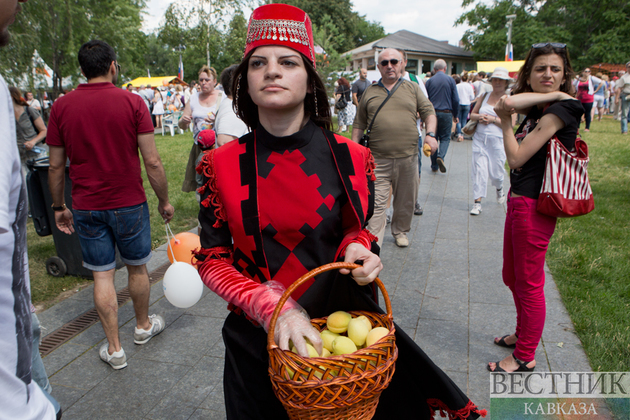Armenian information space is overflowing with materials containing expressive stories, most often causing a feeling of national sorrow and anxiety. In the skillful hands of experienced political technologists, human emotions turn into a powerful weapon.
Why can't Armenia imagine its future without a strategic victory over its closest neighbors for three decades? The so-called heroes of the first war for Karabakh contribute to the rooting of the struggle. Those who more than a quarter of a century ago successfully converted the results of the Armenian-Azerbaijani conflict into political dividends are now parasitizing on the problem of war and peace. By setting an artificial vector of development, inculcating a false system of values, spreading the tragedies of families who lost loved ones in the two Karabakh wars, members of the war party are preparing the ground for revival for themselves and their followers, striving to remain in demand in the space of Armenian politics.
The propaganda thesis about the end of the heroes' generation pushes the Armenian society to return to the origins of separatism, immersing it into the space of the myth that society cannot flourish without ethno-territorial revision. Behind the brackets of such rhetoric is an understanding of the structure of world economies, examples of the prosperity of a few communities, models of interaction between peoples and nations that have managed to overcome long-term and centuries-old contradictions. Instead, the society, deliberately placed in an atmosphere of mourning, is instilled with the idea of restoring the struggle and indefinite confrontation as a panacea for unrelieved pain. The modern fragile world is becoming a reflection of the monstrous lack of freedom, which allegedly fetters the national resource and does not allow it to open up on the path to achieving universal prosperity.
Unfortunately, the territories' blockade has spread in the people's consciousness over the years. The average modern Armenian citizen has no idea how it is possible to live in peace with Azerbaijan and Turkey. Pursuing a long-term desire to expose in their closest neighbours the demons and the culprits of almost all the troubles of the Armenian people, including its fragmentation, the average citizen himself, without knowing it, ceased to distinguish between what is reasonable and what is related to emotions. Experiencing a feeling of undisguised hatred, demonstrating disdain for someone else's argumentation, in the current peaceful conditions, one or another politically active citizen of Armenia fears a similar response from his long-term opponent, involuntarily experiencing a feeling of anxiety. Therefore, unfortunately, for the average Armenian citizen, peace between Armenia and Azerbaijan, negotiations on the restoration of diplomatic relations with Turkey may look like a betrayal of national interests.
None of the ideologists of separatism prepared the Armenian citizens for peace. As a result, peace was the result of a catastrophic defeat in the war, after which the Armenian society ceased to trust anyone. People do not believe politicians, do not believe the words of foreign diplomats, do not accept the European emissaries' rhetoric, remaining alone with its pain.
All this could have been avoided if it were not for the overestimated significance of the first Karabakh war' results, which vulgarized the idea of political and national success. The occupation of the Azerbaijani territories expanded the territorial resource of Armenia, but at the same time doomed the republic itself and its economy to a blockade. The ideology of separatism formed the basis for the consolidation of a divided ethnic group, but few people in the world wanted to support separatism. For the euphoria of a military victory in 1994, Armenia paid with decades of isolation, which is still difficult to overcome today.






